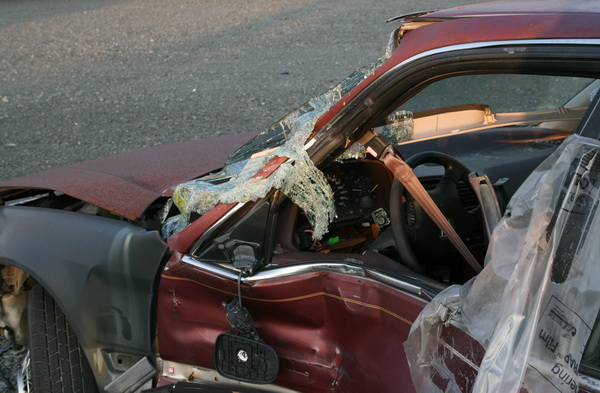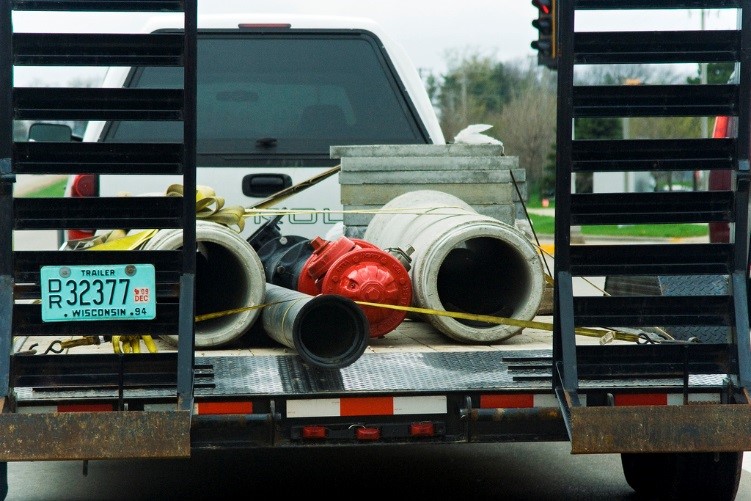No one likes it when their car is declared a total loss. In case you are unfamiliar with the term, a totaled car is one that has been so damaged from an accident that repairing it is nearly as expensive as or more expensive than replacing it.
For example, if your car’s current worth is about $15,000 and you need about $12,000 to get it fixed after an accident, it is considered totaled. As a rule, the determining percentage is 70%-75% of the car’s current resale value and not the amount you bought it for – unless it’s a new car and you’ve used it for less than 4 months.
The auto appraiser and insurance adjuster are usually responsible for determining if your car is a total loss or damaged beyond reasonable repair. The insurance adjuster will also stipulate how much you’ll receive as compensation for the totaled car after some serious evaluation and investigation.
Cars that are typically declared a total loss tend to be older cars that have been used for a while. This is largely because their resale value is often considerably lower than new cars or car models. Late model and old cars with extensive damage typically require replacement parts whose cumulative value exceeds their resale value.
This is the reason they are often declared as a total loss. Please note that the insurer will often pay the claimant the equivalent of the car’s resale value pre-wreck. The claimant can then use that to buy another car or do whatever he wants with it. Usually, totaled cars are sent to the junkyard where they are stripped for parts.
Factors that Influence the Insurance Adjuster’s Offer
If you’d like to know how the insurance adjusters come to their conclusion, then you need to get familiar with the various factors they look into. Most car appraisers and insurance adjusters will consider the mileage of the car, its model, any options and extras, damages to the car before the wreck, resale prices of similar cars with similar specs, its age and model, and lastly, any contributory negligence. All these help the insurance adjuster reach a final tally that they’ll offer you.
Things to Do if the Car is Totaled
1. Inform the Insurer About Any Improvements
If you made any expensive adjustments to the car before the accident, you need to inform the insurance provider. That way, he/she will be able to factor those into the rates they make available to you. If you have receipts for this and other evidence like before and after photos of the parts you upgraded or worked into the car, this will greatly help towards you getting a fair compensation.
2. Determine the Average Value of Your Car
This will help you compare the numbers you’re given with what you already know. It’ll also help if you need to file a dispute with the insurer. For instance, if your insurance adjuster recommends $6500 and you found that the average resale value of your totaled car is $10,000 after doing your research on Kelley Blue Book, Edmunds or the National Automotive Dealers Association, you can dispute the figures and ask for more. You can also hire independent appraisers if you feel they can help you get a better deal.
Who Receives Payment?
This largely depends on how you got the car. If you paid in full for it and totally own it, then you’ll get the payment. If it’s a lease however, the money will go to the leasing company. If it’s financed by a bank, the payment will go to the financing organization. Finally, if the amount paid to the financing organization is more than what you owe, the insurance company will often pay them what they are owed and pay you the rest.
Sources:
http://www.claimsjournal.com/news/national/2013/07/19/233178.htm
http://www.carsdirect.com/car-insurance/how-do-they-determine-if-a-car-is-totaled#Estimating_Your_Totaled_Car_Insurance_Payout
Oscar King, when he’s not writing, works full time as an insurance appraiser, so he has a good handle on the techniques used to determine the damage of a vehicle. After dealing with the damage to property, he’ll often help people with handling personal injuries, and usually refers those desiring to take legal action to David Heil, P.A. You can find out more about Oscar by visiting his Google+.





